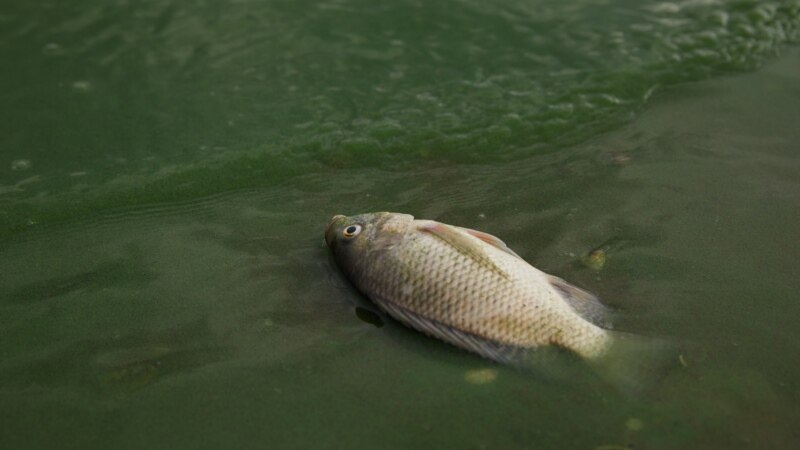
In Zimbabwe’s capital, Harare, residents have complained throughout December that tap water is “dirty, smells of sewage and is often dark black in color.”
The main source of water here is Lake Chivero, which is heavily polluted with toxins, including leaking sewer pipes.
Journalists asked Harare Mayor Jacob Mafume about the polluted water supplied to residents in December. 17 press conference. Mafute replied that the city of Harare provides clean water to residents.
,[T]“The water that is coming from our taps is safe for human consumption and it is also safe for the residents,” he said. “We fully treat the water coming from Lake Chivero and Lake Manyem to ensure that we do not put water into our system that is contaminated or that is harmful to residents.”
That is a lie.
There is ample evidence that tap water in Harare is often responsible for waterborne diseases, making it unsafe for the 1.5 million people who live there.
Mafume’s claim angered Harare residents, who reacted on social media by sharing photos and videos of dirty tap water from their kitchens and saying it smelled like sewage.
On December 18, VOA reported that sewage-polluted waters of Lake Chivero had killed four white rhinos as well as thousands of wildlife, including zebras, fish and birds, and other animals and livestock.
Tinashe Faravo, a spokesperson for Zimbabwe Parks and Wildlife Management, told VOA News that the animals died “from drinking bacteria-contaminated water at Lake Chivero Recreational Park, about 20 kilometers west of the capital Harare.”
Contrary to Mafume’s assurances, the city has not proven capable of providing sufficient clean water to residents. At maximum capacity, Harare’s water treatment facility, the Morton Jaffrey Plant, provides the city with 750 megalitres per day. According to Harare city administration sources, this is only half of Harare’s daily demand of 1,400 megalitres of clean drinking water.
Zimbabwe’s Environmental Management Agency spokesperson Amkela Sidange told VOA that “the city of Harare itself… contributes about 219 megalitres of raw and partially treated sewage [water] Which is released into the environment on a daily basis.”
Most travel advisory websites, including the Canada-based World Travel Index, a source of global data, recommend that travelers avoid drinking tap water in Harare, considering it a health hazard.
This issue is decades old and has not been resolved till date. A collaborative study between the British Geological Survey and the University of Zimbabwe, a UK government organization, concluded that tributaries of the city’s main drinking water source, Lake Chivero, are heavily polluted by industrial waste and raw sewage effluent.
In December 2023, the World Health Organization representative in Zimbabwe, Professor JM Dangou, said that Zimbabwe has “poor water and sanitation infrastructure.”
“Multiple factors contribute to the resurgence of cholera in Zimbabwe, including poor water and sanitation infrastructure. Inadequate infrastructure hinders access to clean water and proper sanitation, leaving communities vulnerable to cholera outbreaks,” Dangau said. Become more sensitive.”
For decades, the Zimbabwean government has struggled with cholera outbreaks due to lack of access to clean water, leading to thousands of deaths and reports of new outbreaks each year.
In February, the United Nations Children’s Fund (UNICEF) reported that 528 people died from cholera, and said, “one of the major factors in the spread of cholera” is “persistent low access to safe water”.
Last year, the Zimbabwean government declared a state of emergency in the capital over a cholera outbreak that killed 150 people across the country.
In July, the parliamentary portfolio committee on local government revealed that Harare City Council is “struggling to purify water amid a cash crunch.”
Committee chair Supa Collins Mandiwanjira said the private sector and individuals owed Harare Council millions of US dollars and the government had failed to repay a US$43 million debt.
“The city of Harare is in dire need of resources to expand the water works so that they can supply water to the city of Harare,” AllAfrica, a multimedia content producer based in the Americas and parts of Africa, quoted Mandiwanjira as saying.
of britain Guardian The newspaper reported in 2020 that “A study conducted by the South African company Nanotech Water Solutions concluded that the health of 3 million Harare residents could be endangered by the provision of water containing toxins that cause liver and central nervous system diseases.” Can be made.”






Leave a Reply